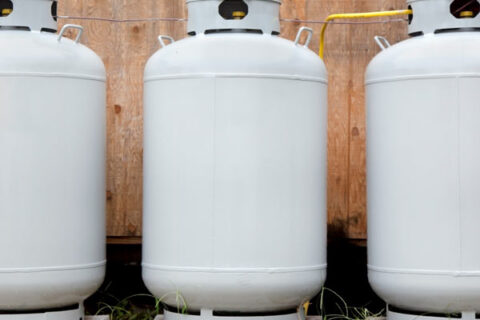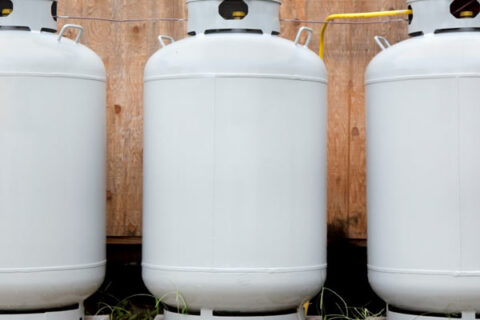Propane for Crop Drying A Cost-Effective and Reliable Solution
Harvesting crops at the time is necessary for ensuring good quality. Freshly harvested crops contain moisture, thereby causing spoilage, molds, and thus reduced market values. Drying systems are therefore employed to prevent it. In such cases, cost-effective propane solutions for farms give the assurances of handling this moisture while easing time and saving on expenses.
Why Propane for Drying Crops?
-
Cost-effective
Propane has generally been more cost-effective than any other drying fuel. It consistently provides heat, thereby speeding up drying time and cutting fuel costs.
-
Efficiency
Propane has no match in its efficiency of operation over other fuels used in agriculture. Propane burns cleaner than any other fuel, producing higher heat output and thus allowing the crops to dry faster and uniformly.
-
Reliable Supply
Farmers can depend on propane to be a reliable source of energy. It is available year-round and, compared to electricity or diesel, is less prone to supply chain disruption.
-
Eco-friendly
Propane is a clean fuel that has lower emissions than diesel or coal. Hence, by using propane, the farmers stand a chance to achieve environmental sustainability by reducing their carbon footprint.
-
Versatile for Agriculture
Propane has been used beyond merely crop drying, including heating barns, running irrigation pumps, fueling vehicles, and powering generators. Hence, propane is a very crucial fuel in farming operations.
Drying systems on a farm use propane burners to produce heat that will drive off moisture from the crops. The different processes of drying include:
How Propane Drying Systems Work
Propane drying systems for farms use propane-powered heaters in order to remove moisture from crops. The drying process involves:
- Harvesting of Crops: The harvesting process involves picking crops at full maturity. But, they still contain moisture at this stage.
- Loading into dryers: The crops are put into a drying system where propane burners introduce an appropriate amount of heat.
- Moisture dissipation: Through heating, the moisture will evaporate away. Thus, ensuring that the crops reach the right storage moisture level.
- Cooling and Storing: After drying, the crops cool before being stored to prevent condensation and mold growth.
Types of Propane Drying Systems
Farmers can choose from a variety of propane drying systems for farms based on their specific needs:
-
Batch Dryers
Batch dryers are designed to process a specific amount of grain at a particular period of time. They are more suited to small farms that deal with moderate quantities of crops. Thus, allowing for precise control over drying conditions.
-
Continuous Flow Dryers
This category is usually used by larger farms in order to manage high volumes of crops. This kind of system helps to give out a continuous flow of grain which then helps in making them efficient for large-scale operations.
-
In-Bin Drying Systems
In-bin drying systems use propane heaters to dry crops inside storage bins. They produce slow and equal drying and are therefore quite beneficial for long-period storage of grain.
Propane vs. Other Drying Fuels
-
Propane vs. Diesel
Diesel drying systems can be costly and can lead to more emissions. On the other hand, propane is less expensive to purchase, burns cleanly, and has minor upkeep.
-
Propane vs. Electricity
Electric dryers rely on power lines from power plants, which are often unpredictable in rural regions. Hence, propane can offer uninterrupted heating regardless of power supply.
-
Propane vs. Natural Gas
Also, some areas are not served by pipelines with natural gas. Propane can be kept on-site by the farmer; this guarantees an easy supply of fuel whenever the occasion demands.
How to Install a Propane Drying System
Farmers interested in using propane for crop drying should follow these steps:
-
Assess Farm Needs
Evaluate the amount of propane needed based on the harvested crop volume. Take into account the size of the farm and the required drying capacity.
-
Choose the Right Drying System
Select the most appropriate drying system according to the type and quantity of crops. Consulting with an expert can help in finding the best solution.
-
Install Propane Storage Tanks
Having a propane tank on-site guarantees a steady fuel supply. Ensure tanks are placed in safe locations and are regularly maintained.
-
Work with a Reliable Supplier
Opting for a dependable propane provider ensures timely fuel deliveries. Ricochet Fuel offers cost-effective propane solutions for farms so that you can easily carry out efficient operations.
Best Practices for Using Propane in Crop Drying
Farmers should follow these tips in order to maximize the efficiency of propane in farming operations:
- Monitor Temperature Settings: Always ensure that the temperatures are set to optimal levels in order to avoid excessive drying and use of energy.
- Inspect Equipment Regularly: Frequent checking of the propane burners, hoses, and tanks aids in the prevention of breakdowns.
- Schedule Propane Deliveries: Make requests for propane delivery before the busiest seasons so that you can avoid running short on fuel.
- Train Farm Workers: Systems that utilize propane for crop drying can enhance effectiveness and safety when farmers are trained properly on their use.
Future of Propane in Agriculture
The use of propane in agriculture is expanding at a fast pace. The modernization in propane technology is leading to enhanced efficiency in drying systems. As more farms embrace agricultural propane uses, they incur reduced expenditure and better crop storage.
Why Choose Ricochet Fuel?
Ricochet Fuel is a reliable supplier of propane with the following benefits:
- Reliable deliveries for farm operations.
- Competitive pricing on propane fuel.
- Expert guidance on propane drying systems.
- High-quality propane for various agricultural needs.
Farmers who are basically looking for cost-effective propane solutions for farms can rely on Ricochet Fuel in order to get a steady supply of propane.
Conclusion
Propane for crop drying produces outstanding results as an agricultural fuel source that provides farmers with efficient and dependable power. It is an excellent fuel choice because it provides economic benefits together with efficient operations and steady heat from the system. Farmers can easily implement propane drying systems for farms to safeguard their crops while optimizing their workflow at a reduced fuel cost level.
However, for sustainable business operations, farmers need to select a suitable propane supplier. This is because the right one will offer cost savings, high efficiency, and consistent heat output. Ricochet Fuel provides high-quality propane and expert support for farms of all sizes.
Contact Ricochet Fuel today to receive exceptional cost-efficient propane solutions that will help you dry your crops efficiently and at the most reasonable prices!


